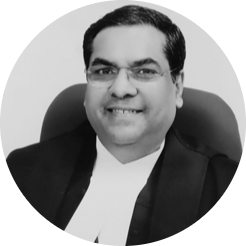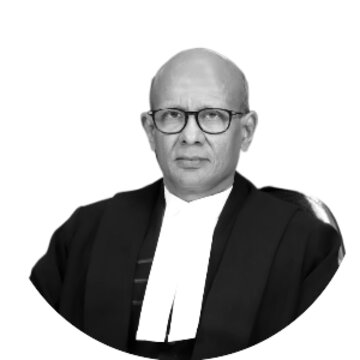Validity of the Bihar Caste ‘Census’
Youth For Equality v State Of Bihar.
The Supreme Court will decide whether the Bihar government has the authority to carry out a caste-based survey.
Pending
Parties
Petitioner: Youth for Equality
Lawyers: Rahul Pratap, Mr Mukul Rohatgi and Mudit Kaul
Respondent: State of Bihar
Lawyers: Manish Kumar and Sakie Jakharia
Case Details
Case Number: SLP(C) No. 16970/2023
Next Hearing: September 4, 2023
Last Updated: July 23, 2024
Key Issues
Does the Bihar government have the power to carry out a caste-based survey?
Would a caste-based survey violate the right to privacy under Article 21?
Case Description
On 6 June 2022, the Bihar government issued a notification to initiate a caste-based survey to collect data on socio-economic conditions to help create better government policies for disadvantaged groups. The survey was to have two phases.
The first phase was set to begin on 7 January 2023, with a house listing survey to count the number of households in the state. The second phase was designed to collect data related to castes, sub-castes, and religion. This was expected to take place between 15 April 2023 and 15 May 2023.
On 6 January 2023, Akhilesh Kumar, a resident of Nalanda, filed a Public Interest Litigation (PIL) in the Supreme Court challenging the state’s notification on the grounds that only the Union government can undertake a census, as per Entry 69 of List I of the Seventh Schedule. He further argued that the Census Act of 1948 does not contemplate the caste-based census. The PIL was listed to be heard on 20 January 2023.
On 17 January 2023, Vishnu Gupta, the National President of the Hindu Sena, filed another PIL challenging the notification.
On 20 January 2023, a Supreme Court bench comprising Justice B.R. Gavai and Justice Vikram Nath refused to entertain the petitions and directed the petitioners to approach the Patna High Court.
On 18 April 2023, the Patna HC adjourned the hearing to 4 May 2023, at the request of the parties. The second phase of the survey, which involved collecting caste-related data, had started on 15 April, as scheduled.
On 20 April 2023, Youth for Equality, an organisation that campaigns against caste-based reservation, approached the Supreme Court seeking an early hearing in the Patna High Court.
On 28 April 2023, a Bench comprising Justice M.R. Shah and Justice J.B. Pardiwala allowed the request of Youth for Equality. Senior Advocate Mukul Rohatgi, appearing for the organisation, requested to file an application seeking an interim stay on the caste survey. The Bench directed the Patna High Court to consider the interim application at the earliest, preferably within three days of filing the application.
On 4 May 2023, a Bench of the Patna High Court led by Chief Justice K. Vinod Chandran with Justice Madhuresh Prasad heard a batch of petitions filed against the survey. Petitioners argued that the caste-based survey was, in fact, a ‘census’ and the authority to carry out such a census lies with the Union. Youth for Equality and Akhilesh Kumar pointed out that the right to privacy, read into Article 21 in K.S Puttuswamy v Union of India II (2018), would be infringed due to inadequate data protection measures.
Staying the caste survey in an interim order, the Patna High Court said that “The state has no power to carry out a caste-based survey, in the manner in which it is fashioned now, which would amount to a census, thus impinging upon the legislative power of the Union Parliament.” The High Court later clarified that its order had not set aside the survey, but it only stayed (a) further work on it, and (b) the dissemination of already collected information to political parties. The next hearing was scheduled for 3 July 2023.
On 11 May 2023, the Bihar government moved the Supreme Court with a Special Leave Petition challenging the Patna High Court’s stay order. The government argued that the stay would cause irreparable loss and adversely affect the entire exercise. They contended that the states have the power to carry out a survey under various entries of the Concurrent List, Fundamental Rights and the Directive Principles of State Policy.
On 17 May 2023, Justice Sanjay Karol of the Supreme Court recused himself from hearing the Bihar government’s challenge. This decision was made due to his prior involvement in certain legal proceedings during his tenure in the Patna High Court. The matter was listed for the next day.
On 18 May 2023, a Supreme Court Bench comprising Justice AS Oka and Justice Rajesh Bindal decided to not intervene as the matter was pending before the Patna High Court.
On 1 August 2023, the Patna High Court upheld the validity of the survey, allowing it to resume. The court held that the state government is competent to conduct caste-based surveys for the purpose of uplifting backward communities. The High Court relied on Indra Sawhney v Union of India (1992), which recognised that there can be a reasonable method and procedure for the identification of backwardness in society. The judgement had confirmed that these methods could be based on caste.
The Patna High Court underscored that the state government cannot wait on their “haunches” while waiting for the Union government’s census to implement proactive measures in its services, in accordance with Articles 15 and 16. Those articles, which prevent discrimination based on religion, race, caste, sex, or place of birth, and ensure equal opportunities in public employment, inherently include provisions for advantageous programs benefiting socially and educationally disadvantaged groups.
On 2 August 2023, the state government resumed work on the second phase of the survey.
On 3 August 2023, the Patna High Court decision was challenged in the Supreme Court by multiple petitioners including Youth for Equality, Ek Soch Ek Prayas and Akhilesh Kumar. The petitions claimed that the survey was an attempt by the Bihar government to “usurp” the powers of the Union government.
On 7 August 2023, the Supreme Court adjourned hearing the plea of NGO Ek Soch Ek Prayas.
On 14 August 2023, a bench comprising Justice Sanjiv Khanna and Justice S.V.N. Bhatti declined to order a stay on the survey and deferred hearing these petitions to 18 August.
On October 6 2023, the Supreme Court Bench listed the case for hearing in January 2024.


